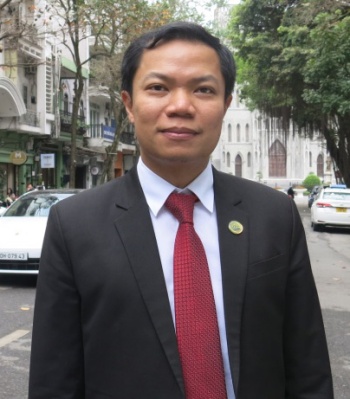Six riparian countries are expected to identify adaptation measures relating to the Mekong River’s flow regime by the end of 2022, according to the Mekong River Commission (MRC).
Anoulak Kittikhoun, the new MRC Secretariat Chief Executive Officer (CEO), told VnExpress International in Hanoi last week that the commission has begun a joint study with China and Myanmar that will examine the changing hydrological conditions found in the entire Mekong River basin.
The study was approved at a meeting of the MRC and Dialogue Partners in September 2021 in Vientiane, Laos.
At that meeting, Phonepaseuth Phouliphanh, Acting Chairperson of the MRC Joint Committee for 2021, had said the study could propose different adaptation measures, including better information sharing and coordination of water infrastructure for the six Mekong countries to effectively address flood and drought risks and water fluctuations.
In 2020, former CEO An Pich Hatda had said that the joint study aimed at finding out what were the causes of the record low flow of water in 2019. Hatda hoped the joint study would provide scientific evidence. People blamed mainstream hydropower projects a lot, but related parties “needed to properly understand the causes,” Hatda said.
Kittikhoun said the project had been delayed because of Covid and related people could not travel within the six riparian nations. The four-member MRC (Vietnam, Laos, Thailand and Cambodia) experts have reached agreement with China and Myanmar on methods, input data, and modeling.
MRC and related countries will work together to reach a common understanding about the changing of flow regimes and develop a preliminary version for cooperation, Kittikhoun said.
Noting that the basin was in the fourth year of drought at present, he stressed that the Mekong basin was entering a very critical stage with countries experiencing climate change impacts and various other developments.
 |
|
Anoulak Kittikhoun, MRC Secretariat Chief Executive Officer, in Hanoi on March 10, 2022. Photo by VnExpress/Viet Anh |
Referring to the joint study, Kittikhoun said downstream countries and China could have come up with actionable recommendations in terms of criteria for better and more consistent notification regime for dams. This means the riparian countries can develop a common understanding about what is needed and when it should be implemented.
“At this moment, the MRC is looking for China and its members to share more operational data from their dams especially to deal with critical flow situations and emergencies,” he said.
The MRC targets building a core river monitoring network, creating longer term forecasts of droughts and floods, from one to three months, Kittikhoun said.
This would allow people in downstream countries to prepare and adjust their social and economic activities, he added. However, this requires active cooperation from six countries, he stressed.
At present, the MRC can only forecast mainstream water levels five days in advance during the flood season.
This is not enough, Kittikhoun said.
He noted that hydropower was a key resource for Laos to develop its economy, but it should do this transparently, share information and consult other countries on projects.
“Countries in Mekong want to make sure that development is responsible, sustainable and does not cause significant impacts to neighbors. If it does, they need to discuss and find ways together to address [related issues]. This is what cooperation is about.”
Regarding the situation in Vietnam, Kittikhoun said there were two key factors affecting water flow in the Mekong Delta. First one is rainfall, which the country cannot control and the second was activities in upstream countries.
Therefore, Vietnam needs to cooperate not only with China, but also Laos, Thailand, and Cambodia to achieve better information sharing on the flow regime.
Kittikhoun suggested that Vietnam works with Cambodia on a sub-basin management plan as the flow regime in Tonle Sap Lake and the development in the Cambodian floodplain and delta would have direct consequences on the Mekong Delta of Vietnam.
- Reduce Hair Loss with PURA D’OR Gold Label Shampoo
- Castor Oil Has Made a “Huge” Difference With Hair and Brow Growth
- Excessive hair loss in men: Signs of illness that cannot be subjective
- Dịch Vụ SEO Website ở Los Angeles, CA: đưa trang web doanh nghiệp bạn lên top Google
- Nails Salon Sierra Madre
 VnExpress News The News Gateway of Vietnam
VnExpress News The News Gateway of Vietnam





